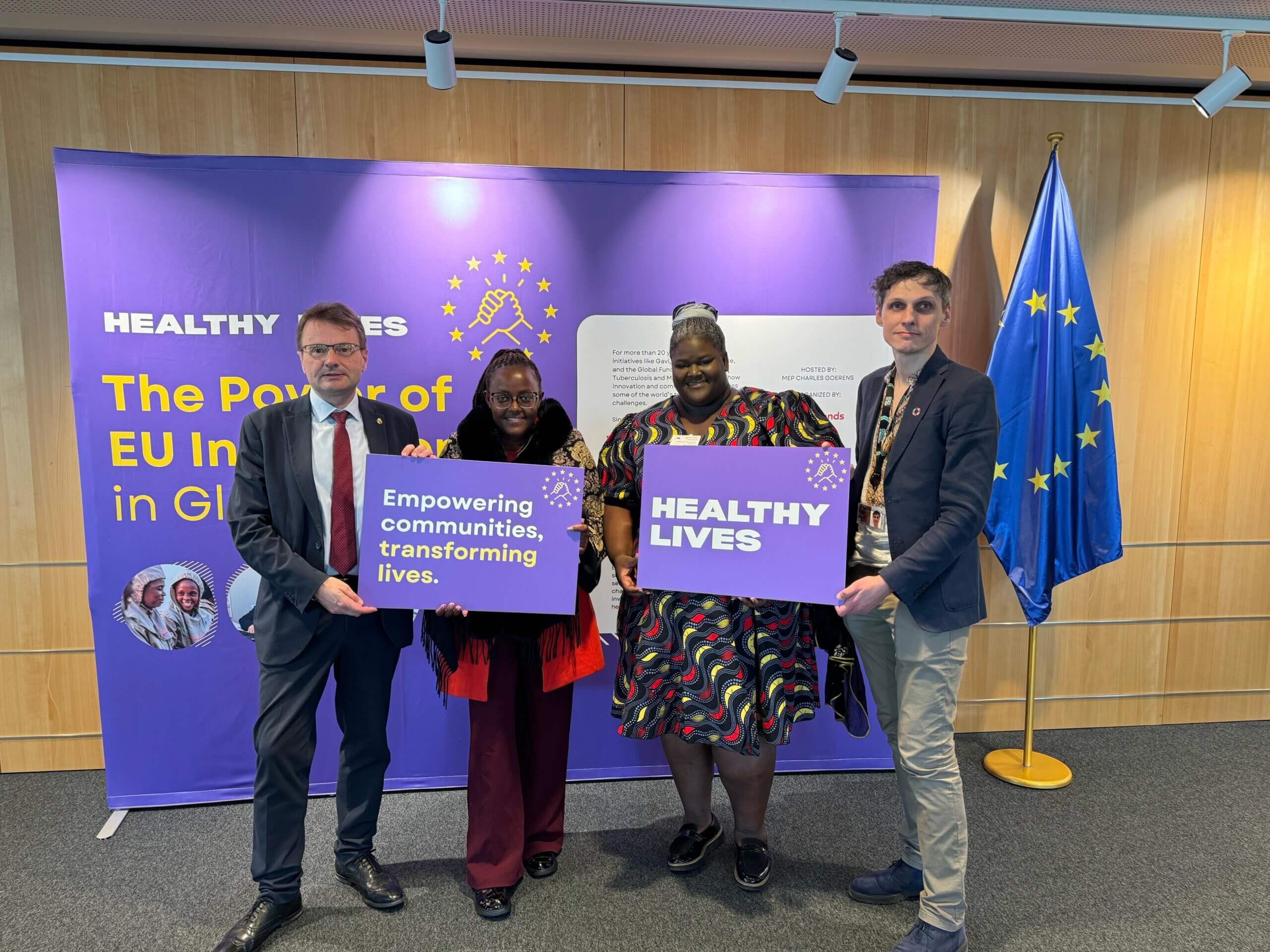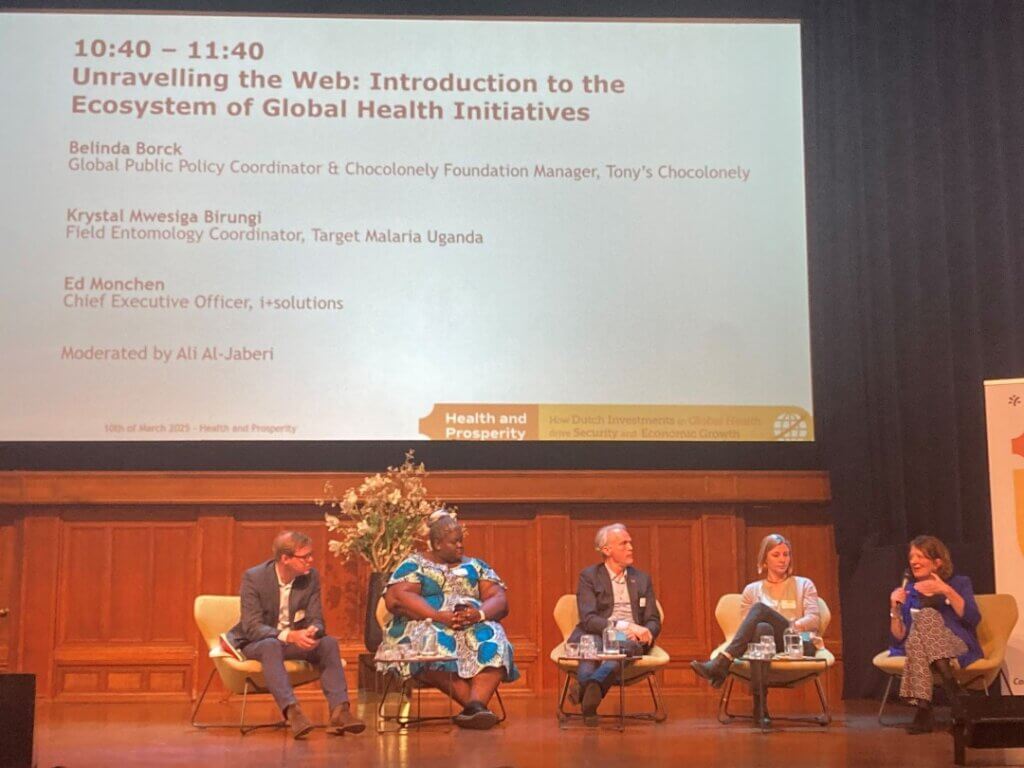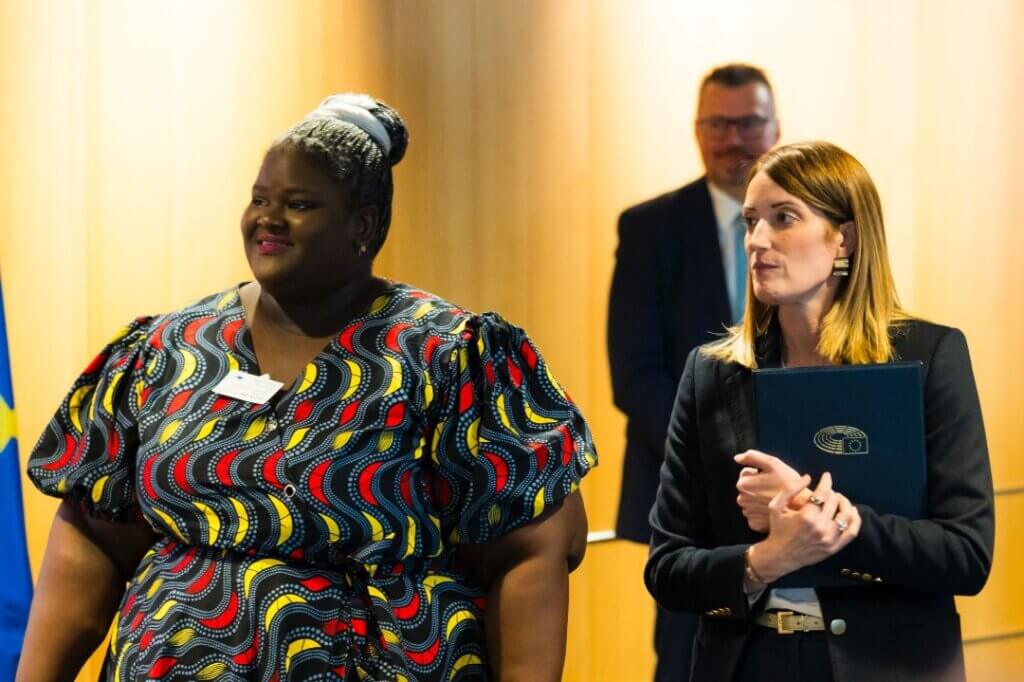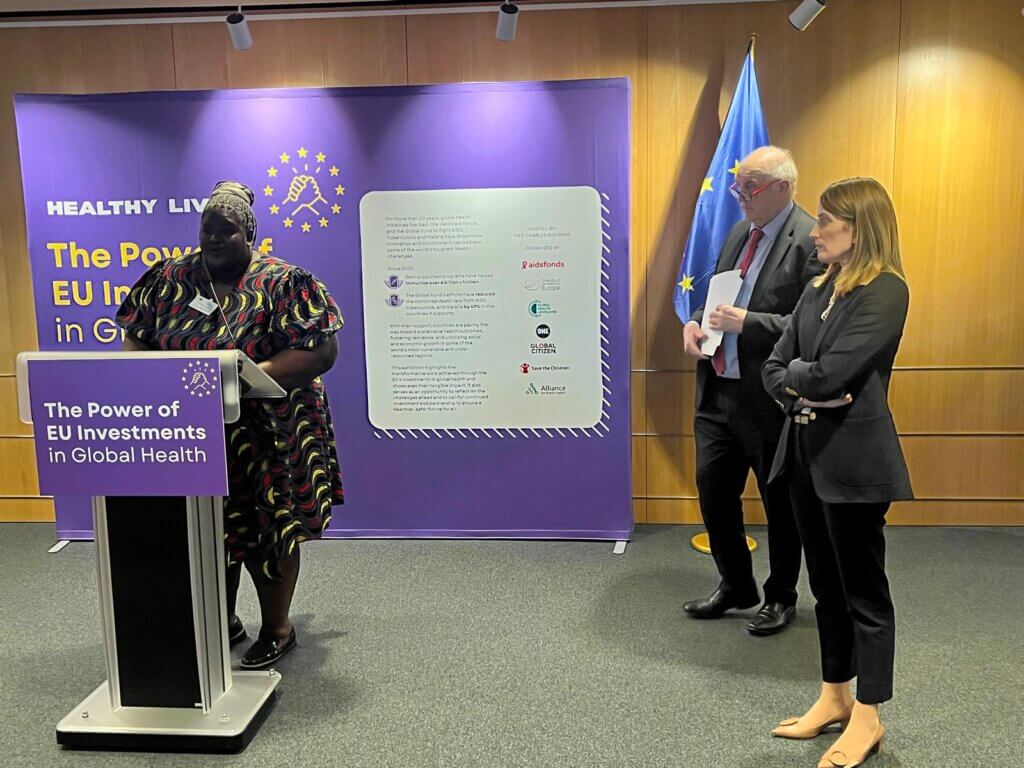European leadership in global health advancement: A keystone to the reach for global health equity


Last month, I had the privilege of attending key events in Europe looking at the value of investment in global health and what the future could look like.
On March 10th, I attended the workshop “Health and prosperity: how Dutch investments in Global Health drive security and economic growth”, organized by the KIT institute in Amsterdam Netherlands. The workshop was a rich discussion attended by policymakers, private sector leaders, researchers, CSO and NGO representatives among others.
A key takeaway was the fact that the world’s global health platform is rapidly evolving. Despite the many challenges that it may be facing, collaboration remains not only key to maintaining global health but also holds enormous potential of benefit to all partners involved. The potential for impact is high both in terms of lives saved but also to the economies of both donor and recipient countries. Another key takeaway was that at a time when global health funding is under pressure and the fight against diseases, like malaria, threatens to lose ground, the value of innovation and the development of new tools is paramount. What was also clear was that the maintenance and scale up of existing interventions and investments in public health are critical for the continued well-being of the world at large.

Representatives from the Global Fund and GAVI, the Vaccine Alliance reflected on the massive impacts that these two programs have had and what it would mean if investments in these programs did not continue. They were joined in this reflection by representatives from the World Health Organization that painted a picture of what it means for global health if investments were to end.
Investments in global health have a multiplier effect: they build economies, change lives, create markets and a global workforce for the future. I was privileged to share my own experience with the impact of global health programs on communities that received such aid. I also spoke on the potential of innovation and specifically gene drive mosquitoes with gene drives to contribute to the toolbox against malaria, especially taking into consideration growing challenges, such as decreased funding, climate change, migrating invasive mosquito species, and drug and insecticide resistance, among others.
“Investments in global health have a multiplier effect: they build economies, change lives, create markets and a global workforce for the future.”
A call to action at the European Parliament
Contributions from the private sector highlighted the role the private sector can play in support of global health investment. Overall, a truly rich discussion that remains key to current world events and the future at large. Thank you to the KIT institute for the invitation to this wonderful event.


I also had the opportunity to engage on the topic of global health investment the following week when I attended “The Power of EU Investments in Global Health exhibition” at the EU parliament on the 18th of March in Brussels, Belgium. Before an excellent turnout and an impressive gallery of carefully selected photographs to show the impact of GAVI and the Global Fund initiatives, I was privileged to speak alongside the President of the European Parliament, Roberta Metsola, MEP Charles Goerens, Dr. Sania Nishtar, CEO of Gavi, and the Global Funds’ CEO Dr. Peter Sands. The speakers noted their appreciation for the unwavering support for EU leadership on global health, the impact that global health initiatives have had on the most vulnerable populations and the world, as well as spelled out the challenges that we face in trying to maintain the progress made to date and to the achieve elimination of HIV, TB and malaria.
Over the last couple of decades, GAVI has vaccinated over a billion children and the Global Fund has saved over 65 million lives, by reducing the death rate due to aids TB and malaria by 63%. However, the job is not yet done. Without further investment in global health, we stand to lose the gains made. For their replenishments, GAVI is asking for $9 billion for the next 5 years and the Global Fund is asking for $18 billion for the next three years, the same level as their previous pledge request
With the rapidly evolving landscape of global health, innovation has become even more important and there is a need for continued investment in developing tools and innovation to address declining funding and rising challenges. A lot of research and innovation is happening within the public health sector. For example, genetically modified mosquitoes, vaccines, larvicides, and new drugs for HIV are being developed. Creating an environment conducive to research and innovation will allow the acceleration of the battle to eliminate HIV, TB and malaria and contribute massively to progress towards public health equity.
Thank you to Aidsfonds, Friends of the Global Fund Europe, Global Health Advocates, Global Citizen, and Save the Children EU & Alliance for Public Health for putting together a wonderful exhibition.
